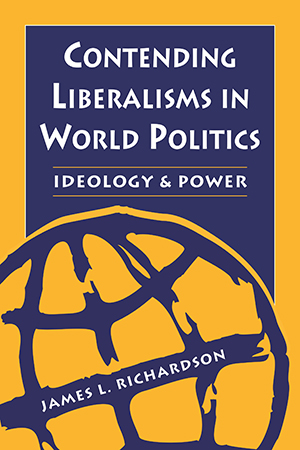James L. Richardson
This wide-ranging critique of current endeavors to construct a world order based on neoliberal ideology comes not from a standpoint opposed to liberalism, but from within liberalism itself.
After introducing the theme of contending liberalisms, Richardson traces the emergence over time of a distinctive liberal view of international relations and reviews the present state of liberal IR theory. He then turns to neoliberal ideology, examining it in detail—particularly in the context of globalization—and investigating the powerful forces that support and sustain it. His conclusion, offering modest grounds for optimism, assesses the prospects for an alternative, more equitable liberal order.
James L. Richardson is emeritus professor of international relations at the Australian National University. His many publications include Crisis Diplomacy: The Great Powers Since the Mid-Nineteenth Century and (coedited with Richard Leaver) The Post–Cold War Order: Diagnoses and Prognoses.
"We owe a debt of gratitude to James Richardson ... for reminding us that liberalism is much more than Wilsonian idealism or globalist neoliberalism.... An elegantly written and well-conceived study."—Philip Nel, Australian Journal of International Studies
"This book is a useful introduction (and antidote) to the depressing power and prestige of neoliberal ideology, its origins, sources, power bases and outcomes. Richardson provides a stinging, forceful and convincing assault on the bastions of this modern orthodoxy.... enlightening reading."——Duncan S. A. Bell, Millennium
"An accessible, important, and consistently thought-provoking book on contemporary liberalism in international relations. Professor Richardson's devastating critique of global neoliberalism identifies the powerful forces in the current international order—and argues that a radical alternative for social justice and inclusiveness can be found within a wider understanding of liberalism."—David Long






